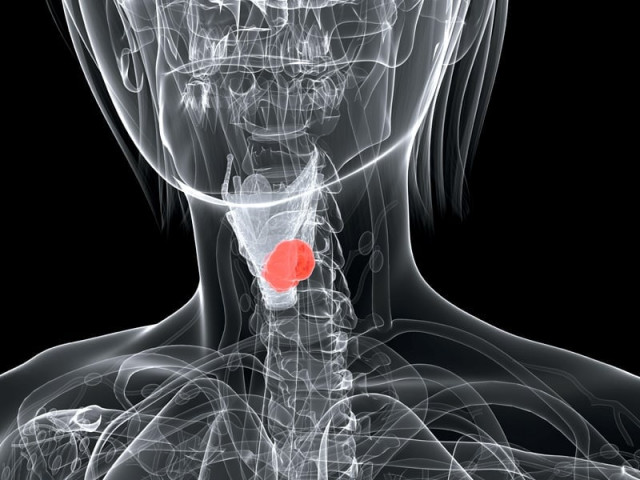Health Tips: The butterfly effect
The aberrations in the level of thyroid hormones can have widespread effects on the body.

Health Tips: The butterfly effect
We’ve always been told that the human body is analogous to a finely tuned machine, operating as a result of biochemical reactions. The rate at which the body’s processes occur is determined in a large part by a butterfly-shaped gland, called the thyroid gland.
It releases chemicals called hormones into the bloodstream which circulate in the systems doing their handiwork. It can actually be felt slipping up and down while swallowing, if the fingers are placed around the Adam’s apple or the voice box towards the base of the neck. But what if the level of thyroid hormones malfunctions? The aberrations in the level of thyroid hormones can have widespread effects on the body and can cause the gland to swell up which is then termed goiter.
When the thyroid gland goes into overdrive producing massive amounts of hormones, the condition is called hyperthyroid. Conversely, when there is underproduction the state is known as hypothyroid, the resulting complaints of the two are polar opposites.
In the former state, sleep in troubled, bowel movements are frequent, skin is warm and moist and the heart thumps rapidly. Further, the patient is heat intolerant, sweaty, restless and tremulous. The person experiences weight loss, in spite of increased appetite. If the hormonal imbalance occurs in teenagers, at times growth is stunted and the onset of puberty is also hampered, with the teen lagging behind in height and other physical changes.
Whereas in hypothyroid, the person has the tendency to feel fatigued, somnolent, cold intolerant, depressed and is prone to suffer from various aches. The skin is dry and pale; the person might gain weight and suffer from constipated bowels.
The root cause or triggers of these changes may be numerous. Usually the cause is an autoimmune disease — a pathological scenario in which the body attacks itself. A history of such diseases in the family can predispose to autoimmune causes of thyroid disorders. Radiation and certain medications such as lithium prescribed in certain psychiatric illnesses can partake in the etiology. Following pregnancy, the body’s stored hormones might leak giving rise to hyperthyroid. Exploring the cause will help the physician better manage the condition and determine whether the condition is lifelong or not.
The physician can pick up the pathology usually with the patients’ narrative and clinical exam. Few blood tests are needed to confirm the diagnosis. Sometimes to specify the etiology, imaging investigations, such as a thyroid scan, might be done. The first step of treatment is medication for lowering the thyroid hormone levels, if they are elevated and vice versa if they are subnormal.
In hyperthyroid, radioactive iodine can be administered or surgery to remove part of the gland can be considered. The consequent hypothyroid is then easier to manage with synthetic analogues. Diet needs to be monitored and weight watched as the new status quo is established within the body. Thus, growth and changes of puberty which were not setting in normally can also be managed effectively if the doctor is consulted in time and the thyroid gland is reset to the right gear.
Published in The Express Tribune, February 18th, 2012.


















COMMENTS
Comments are moderated and generally will be posted if they are on-topic and not abusive.
For more information, please see our Comments FAQ